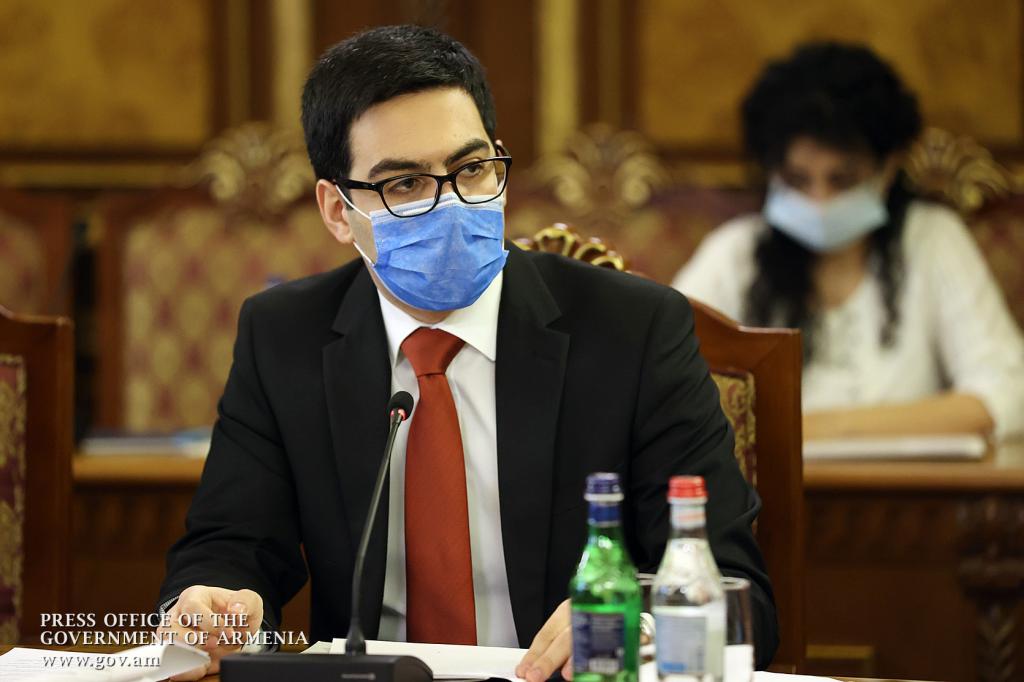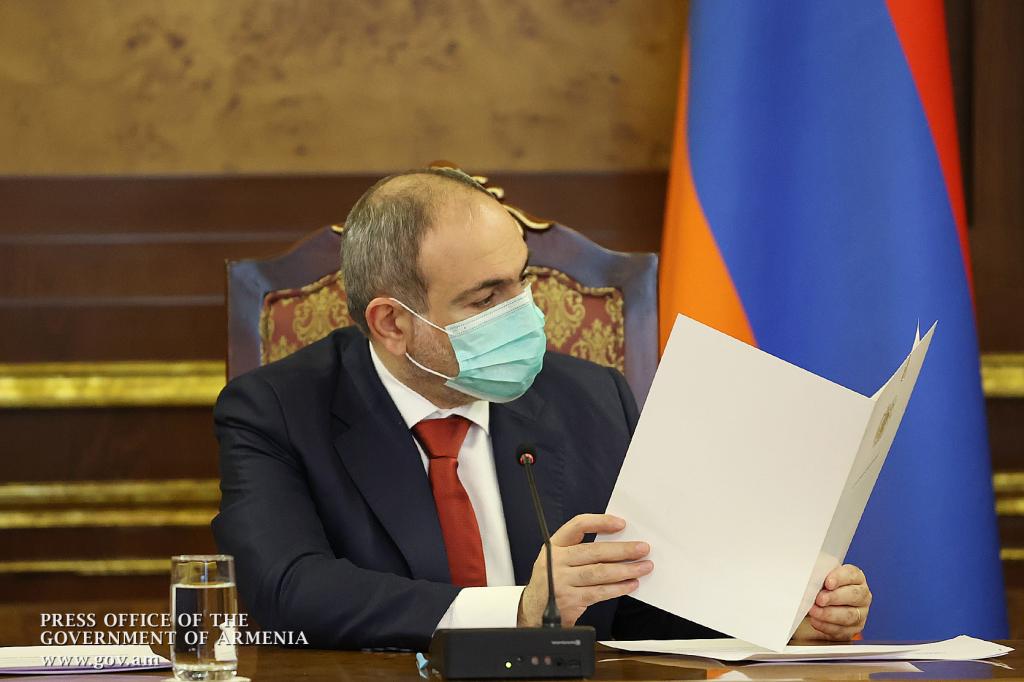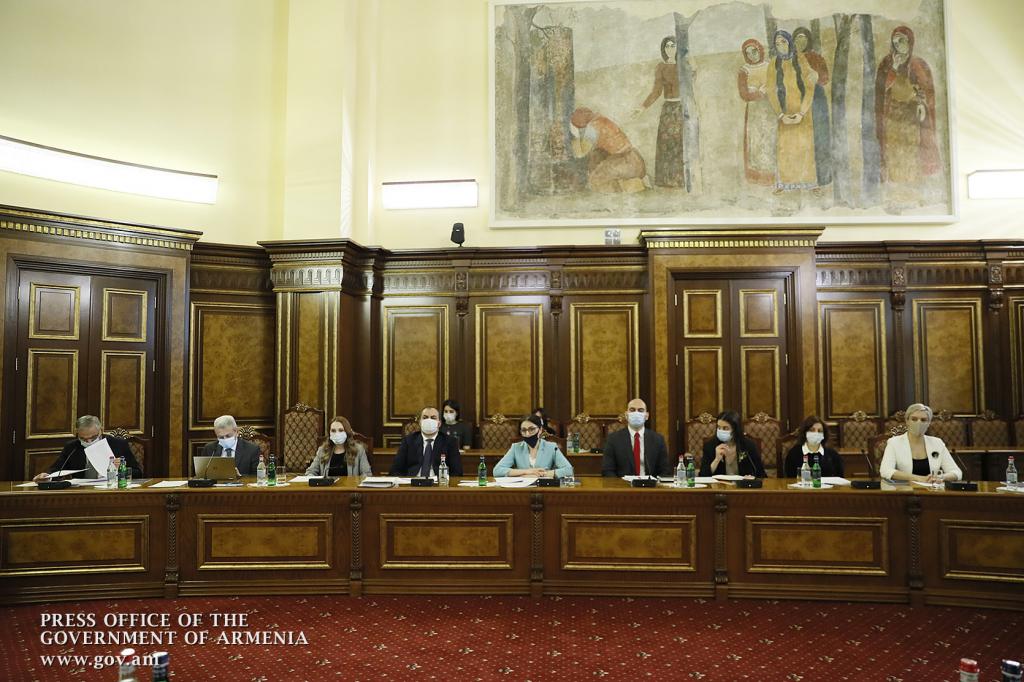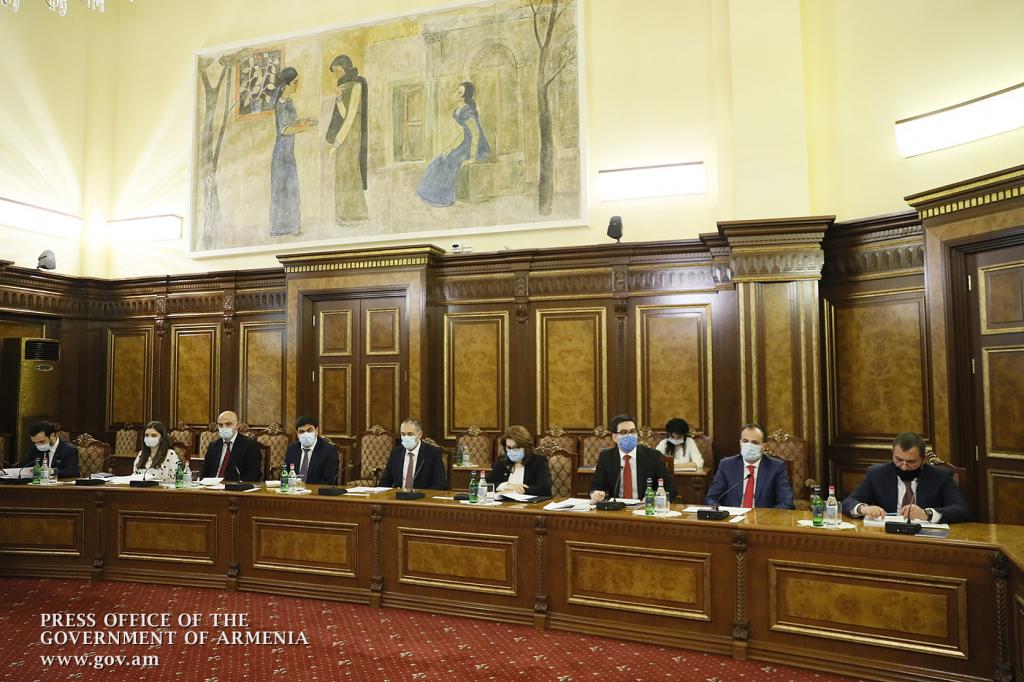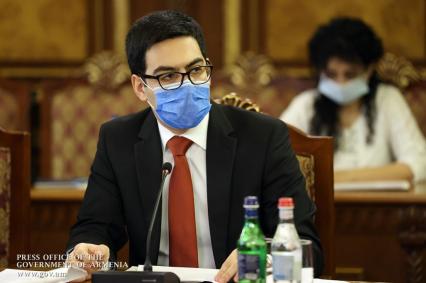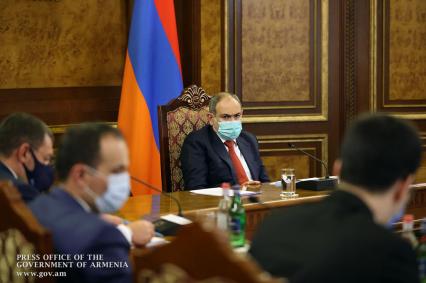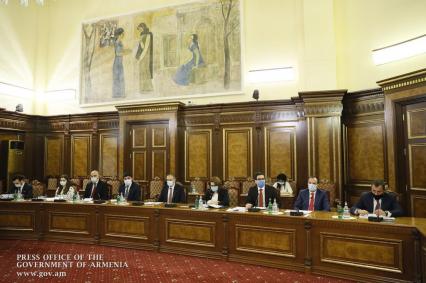Prime Minister attaches importance to work for prevention of political corruption: session of the Anti-Corruption Policy Council is held
16/02/2021

Today, a session of the Anti-Corruption Policy Council was held in the Government, headed by Prime Minister Nikol Pashinyan. A number of issues included in the agenda for the session were discussed. Minister of Justice Rustam Badasyan delivered a report on the results of the course of implementation, as well as monitoring and evaluation of the actions subject to implementation in 2020 under the Anti-Corruption Strategy and the 2019-2020 Action Plan for Implementation of the Strategy. According to the results, almost half of the actions envisaged for 2020 have been fully implemented, 13 actions have been implemented to a greater extent than envisaged, there is no action which has not been implemented, and some have been implemented partially. According to the Minister, the last factor was conditioned by the situation created in the consequence of the pandemic and the war, as well as the priorities for activities of the state administration system in these conditions.
The Prime Minister attached importance to the addressability of the anti-corruption actions and enquired about the practical effectiveness of those actions. Nikol Pashinyan particularly attached importance to the consistent work for the prevention of manifestations of political corruption. In this context, Chairperson of the Commission for the Prevention of Corruption Haykuhi Harutyunyan mentioned that the Commission conducts continuous studies on persons holding state positions and doing business at the same time, and the results of and conclusions on the inspections with regard to certain officials have been forwarded to the law-enforcement bodies. There are criminal cases instituted, which are in the stage of preliminary investigation.
Touching upon the current report on the activities of the Commission, H. Harutyunyan mentioned that integrity checks of 47 persons, including candidates for prosecutor, judge candidates, candidates for judge of the Constitutional Court and candidates for members of the Supreme Judicial Council to be appointed to state positions have been conducted in the reporting period, of which 26 conclusions were positive, 16 were positive with reservation, 4 were negative and no conclusion has been submitted on 1. The work for improvement of the system of declaration of assets, incomes and interests continued. Compared with 2019, the number of declarants has increased by 3 times, almost 640 declarations have been analysed, of which 210 were the declarations of members of the Supreme Judicial Council, member/judges of the Constitutional Court, and their family members. Based on the results of the analysis, the Commission has instituted 4 proceedings with respect to violations of rules of conduct, incompatibility requirements and other restrictions and has submitted a relevant conclusion. A tender for the new electronic system, which will serve as a digital tool in the fight against corruption, has been announced. A methodology for comprehensive evaluation of corruption risks in the state administration system has been developed with the support of international experts. The following sectors have been selected as more risky: appointment to position, promotion, performance evaluation, state budget management and public procurement. The procedure will be launched in the nearest future.
Within the scope of the issues on the agenda, the Minister of Justice presented the steps being taken to ensure the legislative packages targeted at the establishment of the Anti-Corruption Committee and anti-corruption courts and ensure their operation. These structures will deal with the investigation of corruption crimes. R. Badasyan mentioned that these legislative packages have already been adopted by the National Assembly in the first reading, and the second reading is expected. Parallel to this, the issues of the location of these structures, ensuring of building conditions, staff replenishment, ensuring of internal integrity, final clarification of the scope of activities, effective organisation of joint activities with other interested bodies, and technical equipment are currently being considered.
The legislative package for anti-corruption courts envisages that five judges of the specialised Anti-Corruption Court and Anti-Corruption Court of Appeal will investigate civil cases instituted on the basis of the Law "On civil forfeiture of illegal assets". The Prime Minister enquired about what activities are being carried out for civil forfeiture of illegal assets parallel to this. It was mentioned that, in this regard, four cases are in the final stage; the Supreme Judicial Council has launched the process for specialisation of judges who must deal with the investigation of these cases. In this context, there was an opinion at the session that acceleration of the process of establishing anti-corruption courts will increase the effectiveness of the reforms in the justice sector. The issue of remuneration of judges was also addressed.
The Prime Minister mentioned that equivalent remuneration of judges of anti-corruption courts will play the role of a locomotive and will contribute to quality work. Nikol Pashinyan also attached importance to the mandatory introduction of mechanisms for internal integrity checks of the personnel of anti-corruption bodies, considering this as a priority for operation of the system to be created under new criteria.
The legislative package for widespread revelation of real beneficiaries was also presented during the session of the Anti-Corruption [Policy] Council. R. Badasyan mentioned that it is envisaged to introduce an efficient mechanism for revelation of beneficial owners through the unification of two institutions — the institutions of real beneficiaries and beneficial owners. This will extend to all legal persons and is aimed at raising the level of detectability of beneficial owners through the introduction of an electronic system and the creation of a comprehensive database. The information will be public. It is expected that the effectiveness of the process will increase parallel to the complete formation of anti-corruption bodies.
Click here for the source.

